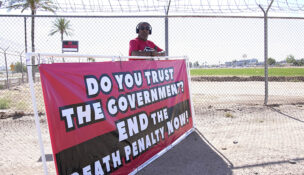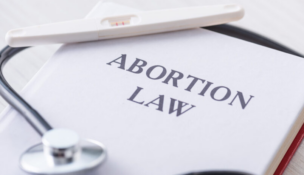Court allows legislative ballot referral on tipped workers to go to vote
Howard Fischer, Capitol Media Services//August 7, 2024//[read_meter]
Court allows legislative ballot referral on tipped workers to go to vote
Howard Fischer, Capitol Media Services//August 7, 2024//[read_meter]
A judge has rejected a bid to block a public vote on a plan by restaurants to pay their tipped workers even less than they do now.
Maricopa County Superior Court Judge Peter Thompson, an appointee of former Gov. Jan Brewer, said there is nothing inherently misleading about Proposition 138, put on the ballot by the Republican-controlled Legislature at the behest of the Arizona Restaurant Association.
He acknowledged that, if approved, it would let restaurants pay employees 25% below whatever is the minimum wage. That figure is currently $14.35 an hour, making restaurants responsible for just $10.76 of that.
By contrast, current law provides a $3-an-hour tip credit, setting the basic restaurant-paid part of the wages at $11.35.
What is bothering One Fair Wage, the national committee working on a separate ballot measure, is that lawmakers gave the measure the unofficial title of the Tipped Workers Protection Act.
Attorney Jim Barton, representing the group, argued that is misleading. And he sketched out various scenarios he said could actually result in tipped workers being paid less if Proposition 138 were approved.
But Thompson pointed out that is not the official title. And even if it were, the judge said, there is nothing inherently misleading about it.
“The short title, ‘Tipped Workers Protection Act’ does not imply or promise a raise to the minimum wage,” he said.
Thompson pointed out that the Arizona Restaurant Association has an economic theory about how Proposition 138 would protect tipped workers.
The group contends that workers would benefit because the change to decrease the financial obligation of restaurants would create an “economically sustainable minimum wage requirement for employers.” And that, the association says, will “prevent elimination of tipped workers’ jobs because of additional, statutory-imposed business costs.”
And, as crafted, that 25% credit would kick in only if the employer could show that a worker, after tips are counted, actually took in whatever is the minimum wage plus another $2 an hour. By contrast, the current law and the $3 credit applies only if the worker, with those tips, hits the minimum.
All that, Thompson said, amounts to what could be considered an economic disagreement of whether letting restaurants pay their tipped workers less than they do now actually is good for the employees.
“The political views of whether the goal of tipped worker protection is best accomplished by adopting or rejecting the proposed amendment should not be conflated with rejection of the proposed amendment before it even appears on the ballot,” the judge wrote.
Thompson said there’s another problem.
He said the official title isn’t the “Tipped Worker Protection Act,” the verbiage that attorney Barton contends could mislead voters. Instead, the official title actually is “Amending Article XVIII by adding Section 11, Constitution of Arizona.”
The Legislature itself also added an official descriptive title: Permits employers to pay up to 25% less than the minimum hourly wage for employees whose compensation includes tips or gratuities from patrons, but only if the employer can establish that the employee ultimately received the minimum wage plus $2 for every hour worked.
“The wording on its face is not deceptive or misleading as to how wages would be calculated,” the judge wrote. He said that description “puts people on notice” of what it would do if approved.
Barton vowed an appeal.
The issue for voters to decide actually is far more complex.
One Fair Wage is proposing its own ballot measure to raise the current $14.35-an-hour minimum wage by $1 an hour this January and another dollar a year later, above and beyond already required annual inflationary adjustments.
Potentially more alarming to the restaurants is that Proposition 212 would phase out that $3-an-hour credit, to the point where restaurants would have to pay whatever is the minimum wage regardless of how much a worker was able to collect in tips.
The Restaurant Association has filed its own separate lawsuit against Proposition 212, seeking to have it thrown off the ballot. Attorney Kory Langhofer contends there are not enough valid signatures on petitions.
A hearing on that case is set for next week.
But the restaurant owners are not counting on a judge siding with them and blocking a public vote on Prop 212. And if that measure does get to the ballot, the record has shown that Arizona voters are amenable to minimum wage hikes, having approved increases in 2006 and again in 2016.
So the association convinced the Republican-controlled Legislature to put Prop 138 that they crafted – the one with the 25% tip credit – on the ballot.
What makes that particularly significant is that it is being proposed as a constitutional amendment. That means if it passes it would override the part of Prop 212 that eliminates the tip credit, even if that measure got more votes.
There is a clear financial reason for the Restaurant Association to want Proposition 138.
If voters approved Prop 212, that could easily raise the current minimum wage of $14.35 an hour to $17 by 2026. That, then, would become the amount that restaurants would have to pay workers once the $3-an-hour tip credit disappears.
But using that scenario, if Prop 138 also passes, restaurants would be responsible for just $12.75 of a $17 minimum wage, a big savings.
















